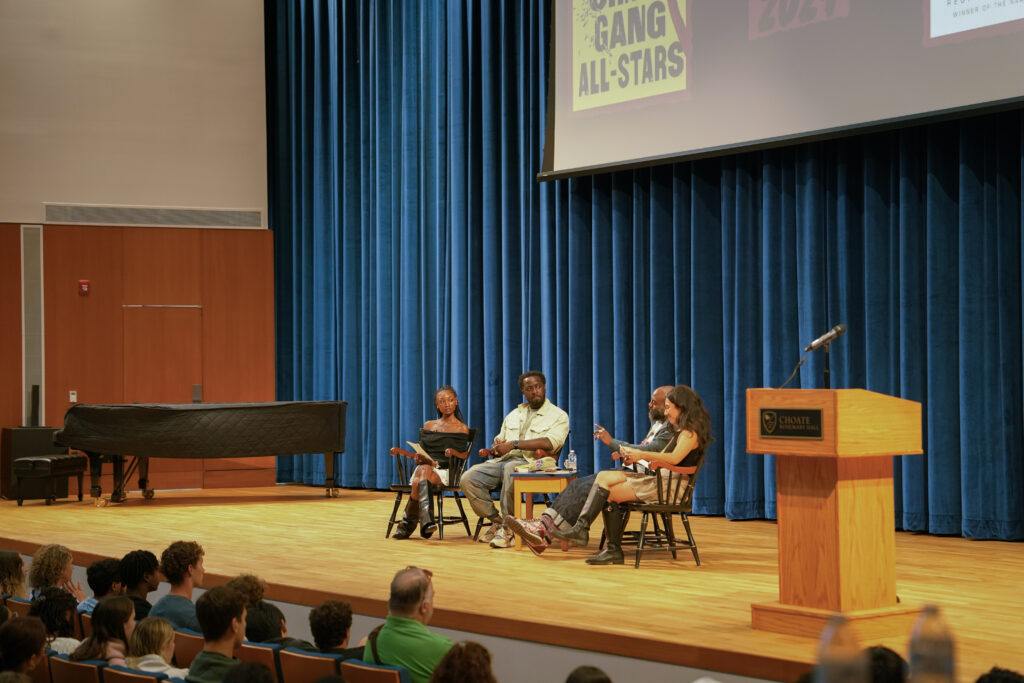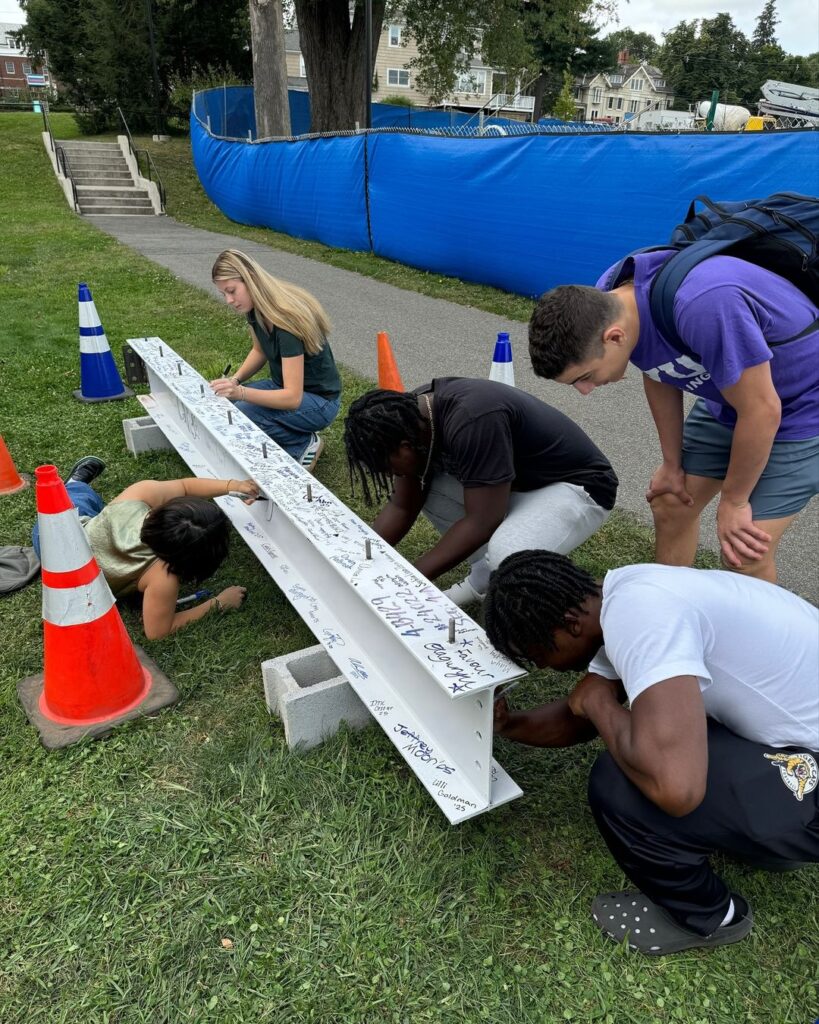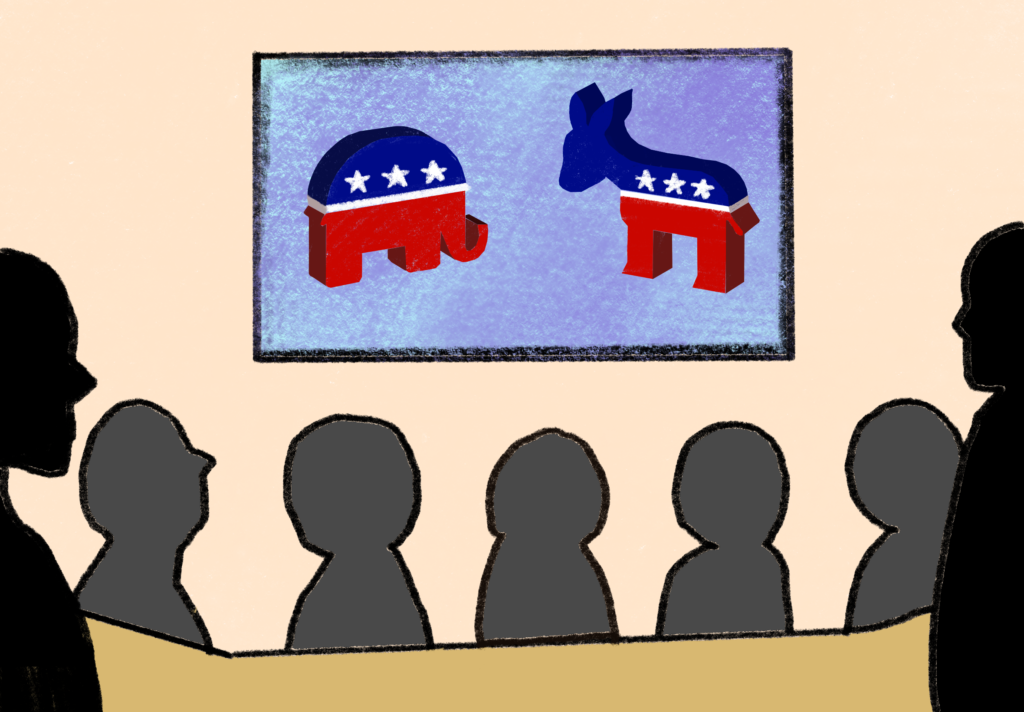By Francesca Howard ’26, Copy Editor
Understanding is the first step toward resolution, and Choate has been working to create opportunities for dialogue on campus. On Monday, September 16, Dartmouth College professors Susannah Heschel and Ezzedine C. Fishere visited Choate to deliver their talk, “How Did We Get Here? Historical Context to Current Predicaments of the Israel-Palestine Conflict.”
The event, planned by faculty and student leaders, aimed to deepen students’ understanding of the Israel-Palestine conflict’s historical, political, cultural, and humanitarian dimensions. Dean of Equity and Inclusion Dr. Rachel Myers, one of the event’s organizers, explained that its goal was to “provide space for learning about a diversity of perspectives and cultivate empathy, integrity, compassion, and respect.”
Prof. Heschel, a professor of Jewish Studies, and Prof. Fishere, a political scientist specializing in the Middle East, have collaborated extensively despite their different academic backgrounds. Though they don’t always agree, they have been able to put aside those differences and co-teach courses at Dartmouth. Their talk at Choate reflected their dedication to education and civil dialogue, with Prof. Heschel reminding the audience, “We are here not to dispute and argue, but to learn.”
Similarly, Prof. Fishere challenged audience members to question their assumptions and consider multiple perspectives, urging students to ask themselves, “What am I missing?” He emphasized that “every story has multiple facets.” Prof. Fishere pushed listeners to recognize their commonalities with those they disagree with. “There are multiple stories in each story. Each story has some validity in it,” he said.
Prof. Fishere and Prof. Heschel encouraged the audience to resist seeing the conflict as a matter of ascribing blame and instead focus on embracing nuance. “To fix a problem, you need to understand it,” Prof. Fishere explained. “If you look at everything as a culprit versus a victim, your solutions will be unidimensional, and you will not redress past injustice.”
Prof. Fishere also emphasized that framing the conflict solely as Israel versus Palestine is an oversimplification. “It’s not just Israel and Palestine — it’s multiple Israels and multiple Palestines,” he said, noting that while Israel is powerful militarily, it is also vulnerable in many ways. Palestine, though weaker, continues to show resilience. Recognizing these concurrent facts, he suggested, is essential to fully understanding the conflict.
Blake Steremberg ’26, a member of the Hillel cabinet, attended the event. “I wanted to learn more about such a complicated conflict,” they explained. Steremberg learned to “think of what can actually fix the problem instead of just noise that might feel great but won’t actually do anything in the long run.”
Zaki Shamsi ’26 appreciated that the discussion did not focus on offering easy answers. “It wasn’t talking about the conflict itself very much but rather how to talk about the conflict,” he said. Shamsi valued the speakers’ emphasis on productive and realistic dialogue, and an understanding that solutions to complex problems are rarely straightforward. “A solution is going to be more than ‘you get this and I get that’,” Shamsi said.
The event also resonated with Kadija Benzinane ’27. “I’m really interested in Middle Eastern politics,” she said. “Being Middle Eastern myself, an event like this really intrigued me.” After listening to the speakers, Benzinane became more aware of “how different stories relate together in this larger conflict.”
Prof. Heschel’s final remarks challenged students to remain intellectually curious and be willing to talk to people who hold different views. “I don’t want to hear people say what I think. That’s so boring. I know what I think,” she said. Rather, she wants to engage in meaningful, respectful discourse where there’s room for disagreement. It is only through this exposure and debate that we can learn. She encouraged students to instead be open to opposing perspectives, and use them to create their own informed opinions.
Prof. Heschel also noted that while diplomacy and peace agreements are essential, they are insufficient. “What we need is a cultural shift,” she said. We should adopt a mindset that prioritizes empathy and understanding, and recognize our shared humanity. Initiatives like this one at Choate, she argued, are a step toward fostering that change.




